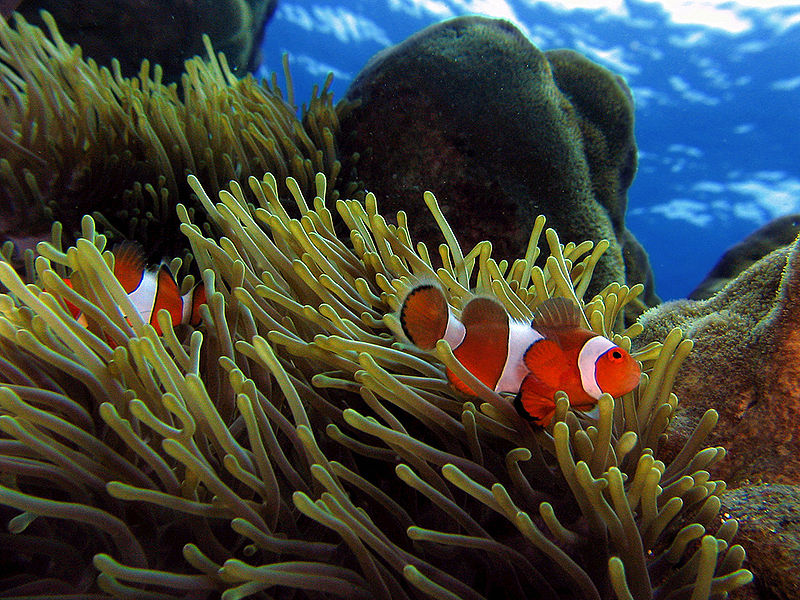Clownfish - as made famous by the film "Finding Nemo" - have a rough life. As tiny fish fry they spend weeks drifting about in the sea, trying to find their way home to the reef where they hatched.
The baby clownfish rely on a range of signals to help them get home, and the most useful of these is their sense of smell. They have very sensitive noses, and can detect tiny concentrations of smelly molecules - some researchers even think that they can pick out the distinctive smell of the reef where they were born.
 But there's bad news for the poor baby clownfish - rising levels of carbon dioxide could be throwing off their sense of direction.
But there's bad news for the poor baby clownfish - rising levels of carbon dioxide could be throwing off their sense of direction.
This comes from work by Philip Munday and his team from James Cook University in Australia, who have found that upping the levels of carbon dioxide in water confuses baby clownfishes' sense of smell, sending them in the wrong direction.
The researchers grew clownfish in a tank in the lab, and put them in a tank with two channels in it, shaped like a Y. One arm of the Y was filled with water carrying specific smell, while the other contained plain seawater, so the fish could choose which they preferred to swim in.
The researchers found that clownfish larvae would swim towards a channel that smelt of sea anemones or tropical trees - the smells of their home reefs. But they weren't drawn to the smell of grass, and hated water that smelt like a swamp tree. All this is what the scientists would expect.
The researchers did the same tests on baby clownfish that were put in water containing higher levels of carbon dioxide than normal. Because carbon dioxide forms an acid in water, water with higher CO2 is more acidic and has a lower pH. The team lowered the pH of the seawater from 8.15 to 7.8.
Interestingly, this is the shift in pH that will be expected by the year 2100 if we keep pumping out Co2 into the atmosphere at the current rate.
The scientists found that in more acidic water, the fish were still attracted to the smells of home - anemones and tropical trees, but they also went for the smell of grass, and the nasty swamp tree. And it gets worse- if the researchers dropped the pH a little bit more - down to 7.6, the clownfish stopped responding to any smells at all - even if they were transferred back to normal pH seawater after being hatched in acidic water.
Munday and his team don't think that's the case - when they looked at the fish under a powerful electron microscope, all their smell organs were present and correct, they just didn't work properly. The scientists think that maybe the low pH is messing up the signals that are sent within their smell organs, so the poor little fish can't make sense of the smells around them.
This is bad news, because the fish are so reliant on their sense of smell to find their way back to their breeding grounds. It's perfectly possible that the pH levels of the sea might drop to these low levels within a century, and it's also possible that the clownfish will fail to adapt to these new conditions, because the pH of the sea has been very stable for a long time. So poor Nemo might be in danger of dying out.










Comments
Add a comment